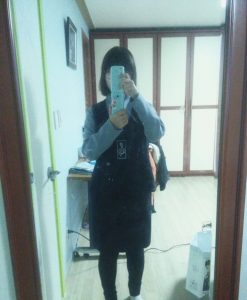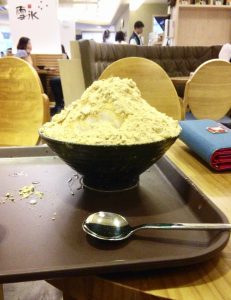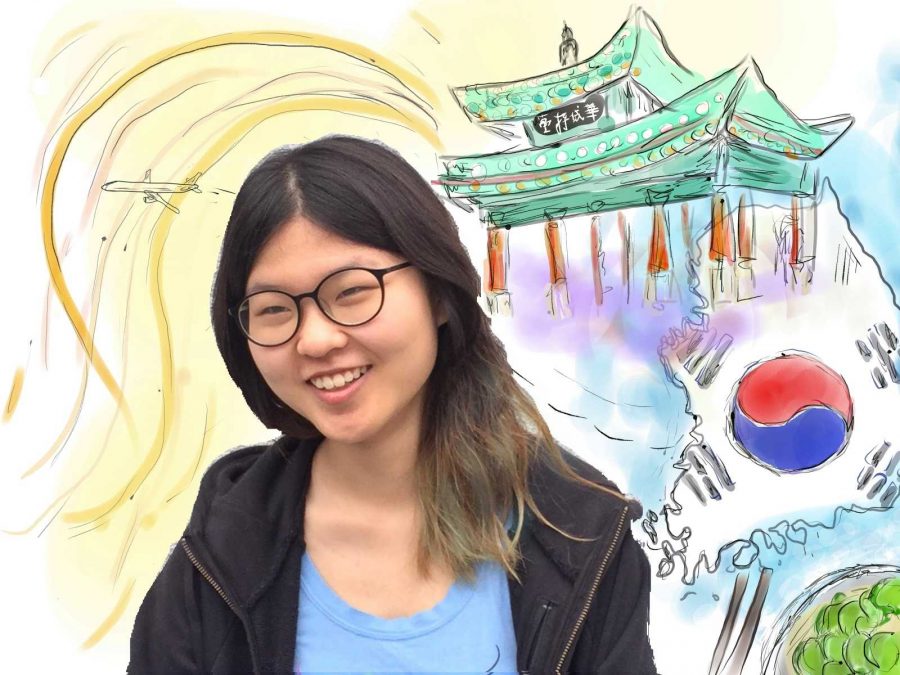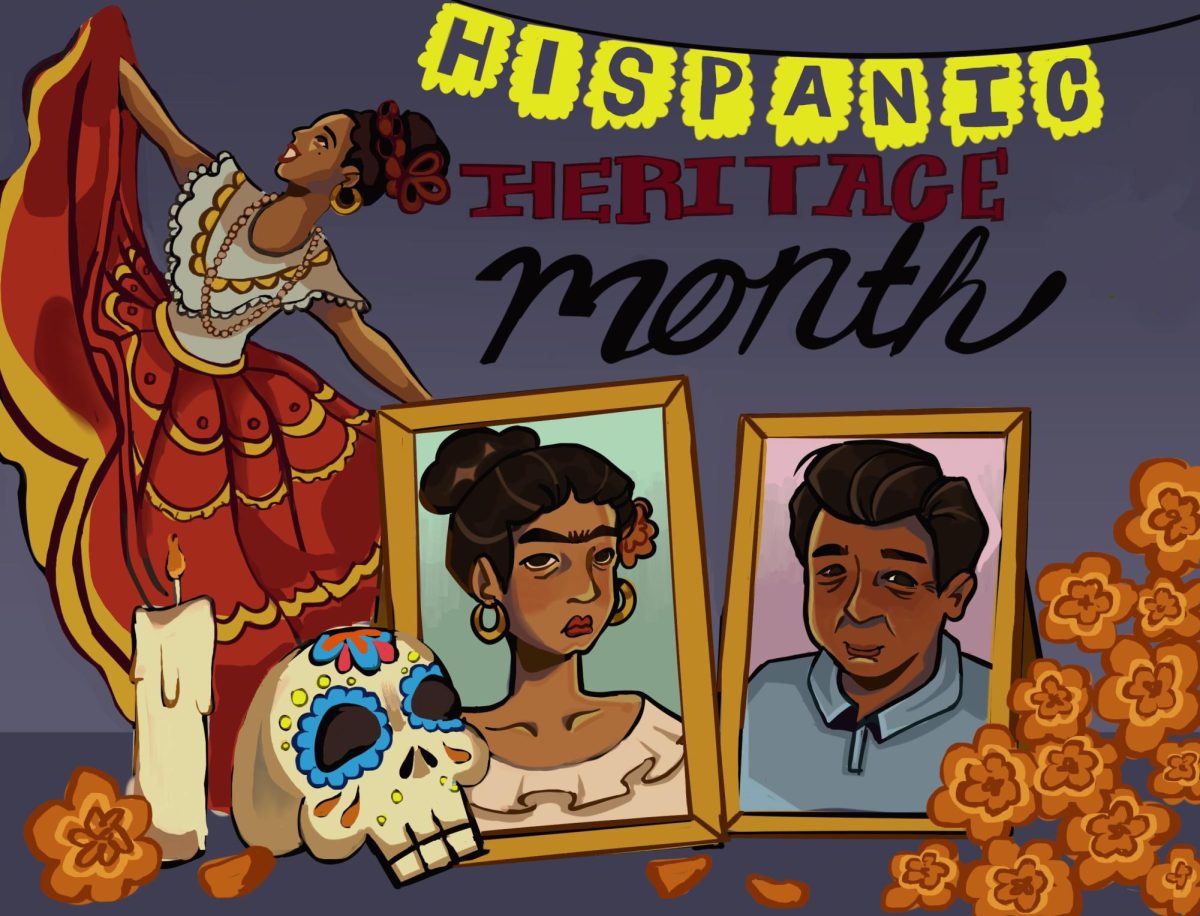The girl with blue ended hair? Yes, that would be Jooyeon Kwon. Normally- well, for the last 16 years- you could find Kwon on the 14th floor in an apartment building in South Korea. However, during the school year of 2016-17, Kwon has been roaming the halls of Foothill as a foreign exchange student.
Last October, Kwon left her hometown Suwon, a city south of Seoul. Suwon is known for its dynasty castles, particularly, the Hwaseong Fortress. Although rich in history, Suwon is still bustling with metropolitan life. It is home to a nexus of subway and bus transportation, both of which Kwon used almost everyday, whether for running errands or occasionally shopping at the Suwon Train Center with friends.

When Kwon first broke the news of her trip to America, her classmates were all excited but “so envious” of her. Why?
High School Musical.
Kwon and her classmates had watched this Disney film in their music class. With the tunes of Gabriella and Troy in mind, Kwon had expected that “all American students are very cool, handsome, pretty and good at speaking English, playing sports and working together.”
Did her expectations match the reality she experienced at Foothill?
“Your school- gets out at THREE!” Kwon exclaimed.
Kwon immediately expressed her shock to Foothill’s dismissal time at 3 p.m.. She explained how her school in South Korea gets out at 10 p.m., seven hours later than Foothill does.
Kwon emphasized the harsh academic pressure in South Korea. Starting in middle school, all students take high school entrance exams that determine which specialized school they will attend. Kwon is currently enrolled in a science based high school, although there are other schools that focus solely on subjects like music or language. Korean schools grade on a 1-9 scale, in which a 1 is the best and a 9 is the worst, and only a limited number of students can receive a 1 grade.

Because of the long hours and competitive environment in South Korean schools, Kwon explained that if she’s lucky, she can get five hours of sleep each night. “I’m busy, my friends are more busy,” Kwon said. Some of her friends sleep three hours a night.
“School and competition is hard and stressful [but] I like it because it makes my mental more strong,” she said.
Her school is strongly divided by social hierarchy. Overall, it’s split into two main groups: the “Brilliant Group,” whose members study a lot, versus the “Play Group,” whose members focus on dancing, singing and high school dating.
Furthermore, in schools in South Korea, there is a lot of bullying, especially in public schools. The first day of school is always very nerve racking for the students; it determines who’s going to be bullied.
“No one wants to be part of the bullying system. So on the first day, everyone wants to find the right group to escape the bullying,” Kwon said.
The general atmosphere is more “mean” than that of America, in which South Koreans are very critical on appearances. Kwon says that it’s totally normal for someone to yell out to a stranger, “You’re fat! You need to go on a diet and exercise!”
Kwon classifies herself more as a member of the “Brilliant Group,” although she, among most people at her school, thinks that dancing is “very cute and handsome.” K-Pop has a definite role in South Korean culture, as she hears K-Pop songs playing all throughout lunch, some of them being Apink’s “NoNoNo” and EXO’s “Monster.”
http://https://www.youtube.com/watch?v=hspqQuuuGIw
“Here, there’s no rice,” Kwon commented.
The Foothill cafeteria’s cardboard trays with chicken patty sandwiches? That was another aspect that Kwon was not used to. At home, she was used to rice.

“Rice for breakfast, rice for lunch, rice for dinner, everywhere rice,” Kwon described.
Although Kwon herself is very interested in politics, most of her school mates aren’t because of the anger they feel towards South Korea’s recently impeached president, Park Geun-hye.
However, no matter in the United States or South Korea, North Korea is everywhere in the news.
“We feel miserable towards North Korea” Kwon said. With its complex history and proximity, South Korean schools teach their students the harsh conditions that North Koreans face everyday.
“Really, we feel miserable,” Kwon reiterated. “[The North Koreans] don’t understand that they don’t want it because they don’t really study, and they don’t know that they’re under a dictatorship.”
From elementary school to high school, South Korean students discuss North Korea’s situation so frequently and so in depth that it’s to the point that it gets annoying. Every discussion results in the same conclusion that the North and South must unite.
http://https://www.youtube.com/watch?v=KSH-FVVtTf0
Although there seems to be some consensus: “more men want Korea to be one country, because the men don’t want to go to the army.”
Conscription is legislated in South Korea, in which all males between the ages of 18-35 are mandatory to serve for 21-36 months, depending on the branch of service. Because of this legislation and the fact that girls are excluded from it, there is sexism in South Korea.
“People here are so nice!” Kwon said. “Korean men are so rude.”
Kwon describes how it’s not uncommon at all for boys to tell girls, “’We go to the military. You don’t do anything. Why are you in Korea?’”
The unpopular Park Geun-hye being female only adds to this problem, along with the older generations that teach these traditional views. “I almost hate all Korean men because they are so rude,” Kwon said.
In contrast, Kwon likes the boys at Foothill and America because “they aren’t mean, they have manners, they think and they have brains.”
Nearly six thousand miles from home, Kwon has experienced a drastic change in cultures and environment. She will return home when school gets out but she enjoyed her time.
“I think this year has been a kind of plan for me,” she said, “because my dream is to become a professor, and that requires leaving Korea to study in a country like America.”
“I learned America’s culture and how it’s like to live here. I really like it,” Kwon decided.










